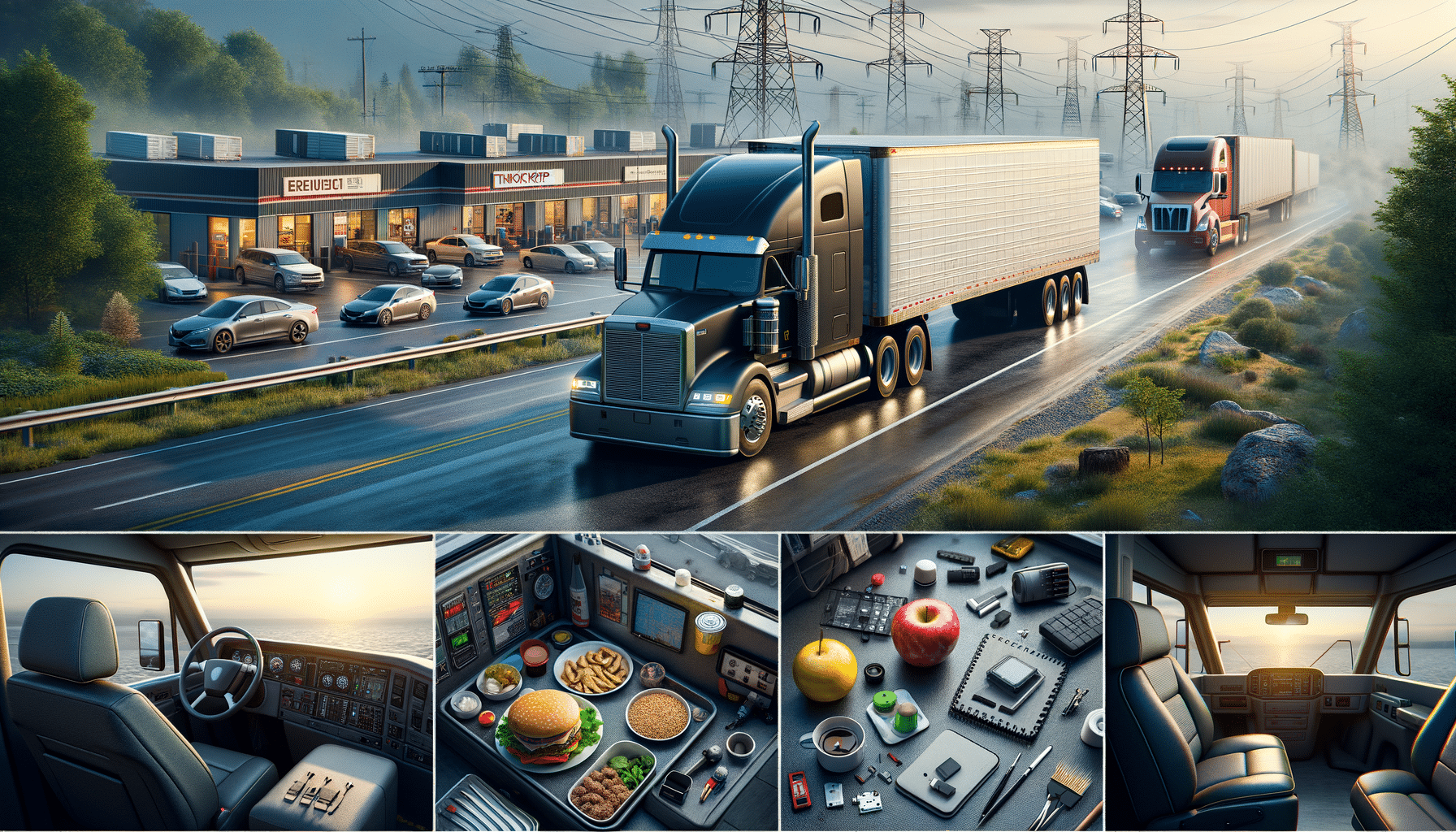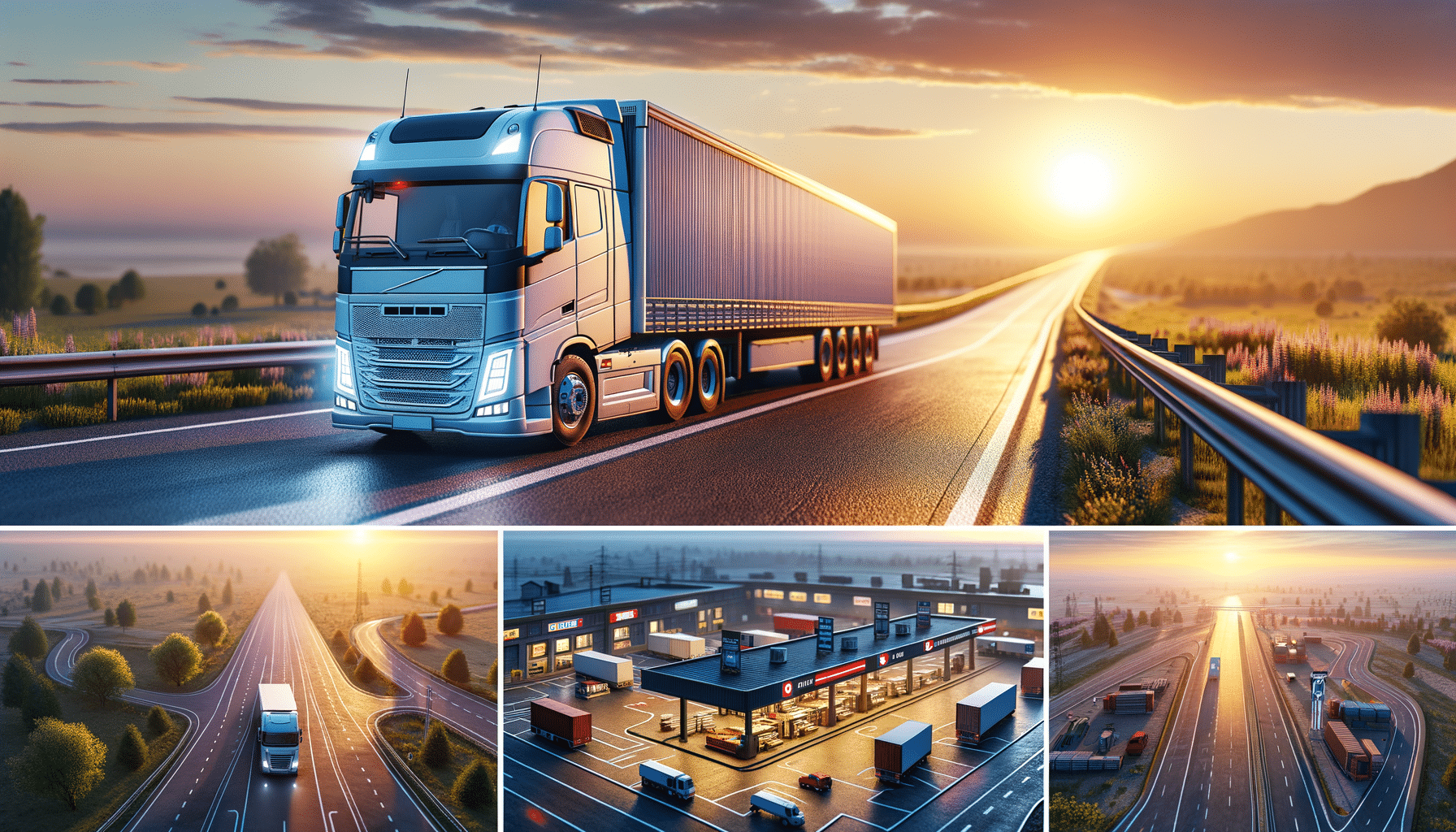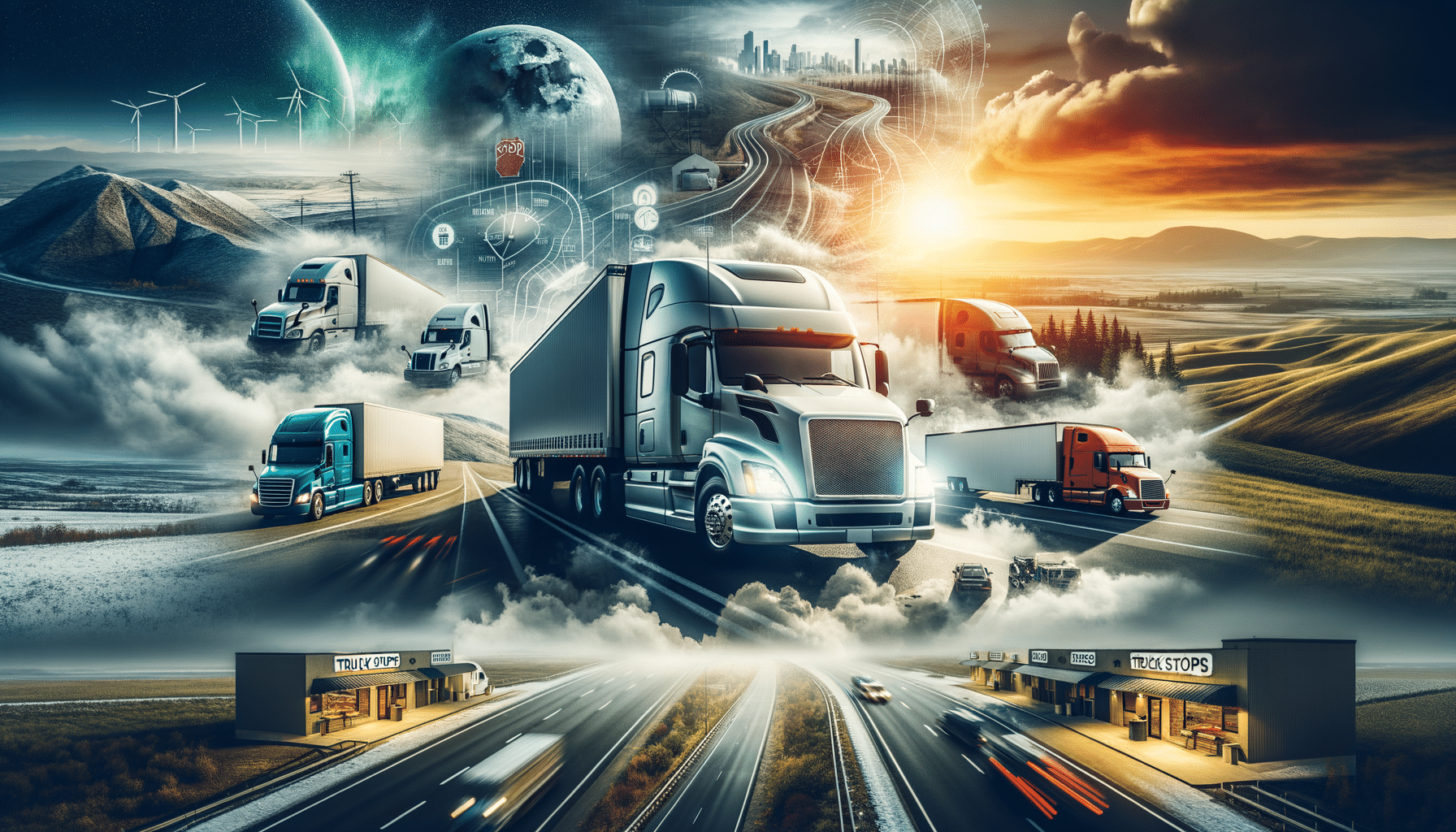
Unbelievable Life Of A Truck Driver
The Role of a Truck Driver in Modern Society
In today’s fast-paced world, the role of a truck driver is more crucial than ever. Truck drivers are the backbone of the economy, ensuring that goods are delivered efficiently across vast distances. They play a pivotal role in the supply chain, transporting everything from essential goods like food and medicine to consumer products and industrial supplies. Without truck drivers, the shelves in our stores would be empty, and businesses would struggle to operate.
Truck drivers contribute significantly to economic growth by facilitating trade and commerce. Their work supports industries such as manufacturing, retail, and agriculture, making them indispensable to modern society. The logistics and transportation sector relies heavily on their skills and dedication. Truck drivers also help in maintaining the balance of supply and demand, ensuring that products reach their destinations on time.
Moreover, truck drivers often serve as the first point of contact for many businesses, representing the companies they work for. Their professionalism and reliability can enhance a company’s reputation and customer satisfaction. As the world becomes increasingly interconnected, the demand for skilled truck drivers continues to grow, highlighting their importance in the global economy.
Understanding the Dynamics of Truck Stops
Truck stops are more than just places to refuel; they are vital hubs for truck drivers. These stops offer a range of services that cater to the unique needs of drivers on the road. From rest areas to dining options and vehicle maintenance services, truck stops are essential for ensuring the well-being and efficiency of drivers.
One of the key features of a truck stop is its ability to provide a safe and secure environment for drivers to rest. Long-haul truckers often spend days on the road, and having a reliable place to take breaks is crucial for their health and safety. Truck stops offer amenities such as showers, laundry facilities, and comfortable lounges, allowing drivers to recharge before continuing their journey.
Truck stops also foster a sense of community among drivers. They serve as meeting points where drivers can share experiences, exchange tips, and build camaraderie. This social aspect is important for drivers who spend long hours in isolation. Additionally, truck stops often feature shops and restaurants that offer a variety of goods and meals, catering to diverse tastes and preferences.
The Challenges and Rewards of Truck Driving
Truck driving is a demanding profession that comes with its own set of challenges and rewards. One of the primary challenges is the long hours spent on the road, often away from family and friends. This can lead to feelings of loneliness and isolation, making it important for drivers to find ways to stay connected with loved ones.
Another challenge is the physical toll that long-haul driving can take on the body. Sitting for extended periods, irregular sleep patterns, and limited access to healthy food can affect a driver’s health. However, many drivers find ways to stay active and maintain a balanced lifestyle through regular exercise and healthy eating habits.
Despite these challenges, truck driving offers numerous rewards. The freedom of the open road and the opportunity to travel across different regions are appealing to many. Truck drivers also enjoy a sense of independence and autonomy, as they are often responsible for managing their schedules and routes. Additionally, the profession offers competitive pay and benefits, making it an attractive career choice for those who value stability and financial security.
Technological Advancements in Trucking
The trucking industry has seen significant technological advancements in recent years, transforming the way truck drivers operate. Innovations such as GPS navigation systems, electronic logging devices (ELDs), and advanced safety features have made driving more efficient and safer.
GPS navigation systems have revolutionized route planning, allowing drivers to avoid traffic congestion and find the most efficient paths to their destinations. This not only saves time but also reduces fuel consumption, contributing to cost savings for trucking companies.
ELDs have become mandatory in many regions, ensuring that drivers adhere to regulations regarding driving hours and rest periods. This technology helps prevent fatigue-related accidents and promotes safer driving practices. Additionally, modern trucks are equipped with advanced safety features such as collision avoidance systems and lane departure warnings, further enhancing road safety.
The integration of technology in trucking has also improved communication between drivers and dispatchers. Real-time updates and tracking systems allow for better coordination and response to any issues that may arise during transit. As technology continues to evolve, the trucking industry is likely to see even more innovations that will enhance efficiency and safety.
The Future of Truck Driving
The future of truck driving is poised for exciting changes, driven by advancements in technology and shifts in societal needs. One of the most talked-about developments is the emergence of autonomous trucks. While fully autonomous trucks are not yet a reality, the technology is rapidly advancing, promising to revolutionize the industry.
Autonomous trucks have the potential to reduce human error and increase efficiency in the transportation sector. They could operate around the clock without the need for rest breaks, significantly reducing delivery times. However, the transition to autonomous vehicles also raises concerns about job displacement and the need for drivers to adapt to new roles within the industry.
In addition to automation, there is a growing focus on sustainability in trucking. The industry is exploring alternatives to traditional diesel engines, such as electric and hydrogen-powered trucks. These innovations aim to reduce the carbon footprint of transportation and align with global efforts to combat climate change.
The future of truck driving will likely involve a combination of human expertise and technological advancements. Drivers will continue to play a crucial role in overseeing operations and ensuring the safe and timely delivery of goods. As the industry evolves, there will be new opportunities for drivers to acquire skills and adapt to changing demands, ensuring that they remain an integral part of the transportation landscape.


